Are books dead?
 Many of you will have already read the condensed version of Ewan Morrison’s talk at the Edinburgh Book Festival, which was published in The Guardian on Monday. If you haven’t, you should: it provides a bracingly unsentimental account of the difficulties facing publishing in general and authors in particular as the print economy transitions to digital. Central to Morrison’s argument is an assumption the transition to ebooks will be rapid, that the same pressures from piracy and consumer behaviour that have reshaped the economics of other industries will drive book prices down to levels which are incapable of supporting authors, and that this in turn will lead to the fairly rapid collapse of the economy of advances and royalties that has sustained professional writers.
Many of you will have already read the condensed version of Ewan Morrison’s talk at the Edinburgh Book Festival, which was published in The Guardian on Monday. If you haven’t, you should: it provides a bracingly unsentimental account of the difficulties facing publishing in general and authors in particular as the print economy transitions to digital. Central to Morrison’s argument is an assumption the transition to ebooks will be rapid, that the same pressures from piracy and consumer behaviour that have reshaped the economics of other industries will drive book prices down to levels which are incapable of supporting authors, and that this in turn will lead to the fairly rapid collapse of the economy of advances and royalties that has sustained professional writers.
It’s unlikely to come as a surprise to regular readers of this blog that I largely agree with Morrison’s arguments. One of the odder aspects of the discussion of the challenges facing the publishing industry over the past few years is the collective delusion that somehow publishing will be shielded from the disruption experienced by industries such as the music industry. I’ve lost count of how many times I’ve heard people say things like “people will always want books”, “there’s something special about browsing in a bookshop” or “my seven year-old loves reading, therefore there’s no crisis”. All those things might well be true, but it’s not going to hold back a tide of change driven by a fundamental shift in the economics of the industry.
All that said, I think Morrison’s article should be read as much as provocation as thesis. There’s little doubt it’s framed within a well-founded unease about the increasing cultural power of behemoths such as Amazon, Google and Apple, or that it wants individuals and governments to at least question our assumption that we have no capacity to manage this transition (Robert Darnton has been making similar argument in his campaign against the Google Book Settlement).
I’m with Morrison on this. Governments need to understand the interests of citizens and corporations are not the same thing, especially when it comes to the control of culture. But I also think Morrison’s provocations cause him to if not overreach, then certainly to assume the future will be neater than I think it probably will be.
The first thing that’s worth saying is that while I think Morrison is right in arguing that the attachment of older readers to the codex book is unlikely to be replicated in younger readers, I think he’s wrong in assuming this will mean an end of the book altogether. Certainly it’s worth noting that parallel to the rise in digital formats has been a rise in print-on-demand and bespoke publishing. How big the market for these will be is unclear, but I suspect what we’re really looking at is a generational change in the material economy of the book, which will see it move from being a low-cost (or relatively low-cost) consumer good to being a more exclusive, prestige object.
Of course even if I’m right about this, that’s unlikely to make a big difference to either the large-scale economics of publishing or the bottom lines of authors. That difference has to be found in the digital economy, which will, as Morrison suggests, probably supplant the current print economy within a decade.
Morrison’s argument is that piracy will dramatically undercut the economics of publishing in the same way it did in the music industry, and that in the process it will drive a change in consumer attitudes. I suspect he’s part-right on both scores: piracy is an issue, and will become a bigger one in years to come. And the demand for lower and lower prices is real and increasing, as the spats around authors and publishers stressing the fixed costs of book production show.
But Morrison neglects what seems to me the other big lesson of the music industry, which is that as the success of the iTunes Store demonstrates consumers are prepared to pay for content if it’s easily available and priced competitively.
The next question is, of course, whether consumers are prepared to pay enough to support something that looks like the publishing industry as it currently exists. I’m not going to pretend I have an answer to this, but my feeling is the answer is yes and no. The past couple of years have been pretty ugly for a lot of publishers, with a bad Christmas last year and rapidly declining sales in the first half of this year. The figures are complicated by the rise in digital sales, but in Australia while the volume of physical book sales has held up because of the sell-offs of stock by Redgroup, value has fallen, fiction is down 10% and sales of the top 10 books are down by as much as 50% (some publishers speak privately of declines in sales of 25 and 30% across the board). Although at least some of this decline can be attributed to the exceptional circumstances such as the recession and the collapse of Redgroup in Australia and Borders in the US, they’re not the whole story, and if profits keep falling it won’t be long before publishers start having to restructure their operations.
That bland term, “restructuring” is really code for layoffs, reduced commissioning and cancellation of projects. And as such it can’t help but hurt both the people who work in the industry and writers. Morrison correctly asserts the “advance economy” is under siege (“10k is the new 50k”), arguing this economy has enabled a generation of writers to develop their craft. I think he’s attributing too much importance to advances, and that it’s actually the system of royalties underpinned by copyright that enable writers to work, but he’s not entirely wrong, and as advances disappear it will be increasingly difficult for many authors, especially literary authors, to make a living wage.
Obviously this is bad news for many writers and publishers. But again I’d argue the real lesson of the music industry is that as the initial disruption passed other business models began to appear, from Spotify to Bandcamp, as creators and publishers found new ways of reaching audiences. Some involve disintermediating the music labels and selling direct, others use quite different business models. But what they do demonstrate is that in the right circumstances consumers will pay for content, and that there are alternative distribution mechanisms to the Amazon/Apple/Google monopolies.
I’m not going to pretend I know what these mechanisms will be. I have some ideas, but I think one thing we can safely assume is that there will be many more of them than we’re currently used to, and each will serve different markets in different ways. Whether these new models will be capable of sustaining writers in the way the old system did seems to me to be an open question. I suspect the truth will be, as it’s always been, that not many writers will make a lot from their work, but I also suspect it’s going to get a lot harder quite quickly, especially for writers such as myself. But writers and publishers who are prepared to adapt and experiment will succeed.
Which brings me to the last two things I want to say. The first is that I think one counterweight to the general bleakness of Morrison’s argument is that the experience of the music industry has been that the decline of the traditional models has allowed much greater diversity to emerge, alongside a boom in things like music festivals, and my guess is the breakdown in traditional models is already engendering something similar in publishing. The hegemony of the poem/short story/novel division is already under siege, with publishers launching projects such as Pan Macmillan’s digital-only Momentum imprint, which will publish novellas and works not suited to print, and it’s quite clear there’s a hugely energetic community of writers and artists creating works which don’t fit into traditional categories all around us.
The other is that I think Morrison is right, and it is vital we stop assuming we are unable to use these processes to benefit the public as well as corporations. It is possible to find ways of supporting creators, whether that’s through traditional mechanisms such as direct grants or less traditional systems of licensing such as that administered in Australia by the Copyright Agency. And that governments need to be very wary of the agglomerating strategies of Google and others. Once again there’s unlikely to be a one-size-fits-all solution, but I’m not sure there ever has been, either in business or for writers.
Trackbacks & Pingbacks
- Why Morrison is wrong: ebooks are not mp3s « author and ereader
- Bookstores Deserve To Die « Grub Street
- dia a dia, bit a bit… por Silvio Meira » o livro, o digital e o autor
- pinboard September 7, 2011 — arghh.net
- the fall of print
- Digital disruption is the new normal | ARTS & FARCES internet
- The Future of the Book: The Egg Won’t Come if the Chicken’s Starving | PUB401



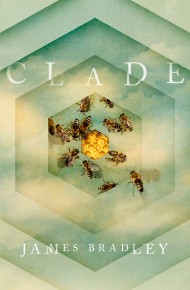

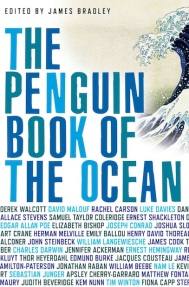
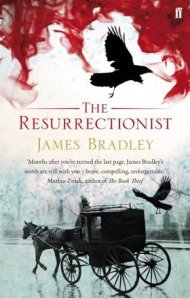
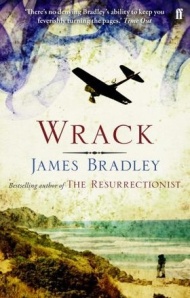
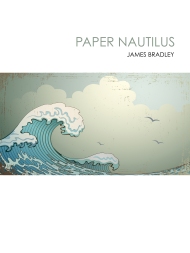
It would be a very sad day books all went digital. I love buying from a bookstore, the browsing, the smell, the service, I never want to read books on a screen.
I don’t want books to go all digital. With a physical book, you can keep it forever and it’s yours. You can write notes in it and stuff. With digital books…what if one day they went bankrupt (unlikely but still)? With an actual book you KNOW it’s going to be there on your bookshelf forever.
This is a fantastic piece.
One of the key issues is the value that publishers add – and that writers continue to have faith in them. That’s something Ewan was actually positive about in his provocation.
The difficulty, of course, is the economics of the situation.
Something new and positive in this respect (albeit only possible when aided with public funding) was announced yesterday at the Edinburgh Book Festival, with Scotland’s Cargo publishing teaming up with US outfit McSweeney’s to publish new work commissioned by the Edinburgh Book Festival. http://www.cargopublishing.com/blog/2011/08/29/cargo-mcsweeneys-and-the-edinburgh-international-book-festival/
I do not see any reason to believe that the print economy will transfer, in bulk, to digital. In the music and film industries, the transition to digital began with the creation of digital recordings on CD and DVD which were almost invariably better than the previous analogue recordings. These digital files were then converted into downloadable formats. Print books do not face the same pressures. There is no overwhelming demand for digital books: nobody is throwing away their libraries and rebuying everything again on Kindle (which was one of the biggest financial drivers behind the conversion of recorded music to CD and film to DVD), and — again unlike the music and film industries — digital books are *inferior*, in most respects, to print on paper. Ebooks are cheaper to manufacture (a bit: ink and paper are cheap, and the overwhelming majority of the manufacturing cost of a book comes before any presses roll); and of course have virtually no storage or distribution costs. They also offer a less pleasant or convenient reading experience, require the reader to pay for some piece of technology to work them on, present all manner of copyright problems preventing easy sharing or resale, are prone to piracy, and are intrinsically ephemeral.
Ebooks will develop and evolve, and become their own thing. Mostly, probably, a vast swamp of self-published, unedited, often subliterate slashfic garbage, with occasional remote islands of worthwhile writing. You’ll also get serialisations, possible rolling soap-opera writing, neverending novels; short stories may be reinvigorated (and poetry too, who knows?); and a fair amount of airport fiction and other disposable material. Much will depend on the technology. E-readers are better for reading print than tablet computers or phones — but not as good as print on paper. Most people will not buy one, and those who do will be unlikely to upgrade to the next e-reader as tablet computers become cheaper. At the moment, the Kindle (and other e-readers) look to be doomed, as they perform only one task, and will be replaced by tablet computers which can display text (albeit not as well) and other things too. If (a big if) e-ink can be made to produce high-quality colour, and give the same performance as an LCD screen, for a similar price — i.e. if you can make a tablet computer out of e-ink, that can surf the net, show streaming films, *and* provide a good reproduction of type — then they will represent a serious contender to print on paper. Then the only advantages that printed books will have will be: no DRM (so easy to share and resell), ease of use, longevity, no file-format clashes, no dependence on external technology, no need to constantly upgrade to keep on reading the same things …
Finally, if ebook piracy does become a significant problem — i.e. if publishers and authors cease making money from publishing them — then publishers can simply cease producing electronic editions and go back to print on paper. The music industry is stuck in the digital trap, and does not have the option to release new work on vinyl, because their customer base lacks the machinery required to play it. But a printed book is its own machine, and will work perfectly, time after time, for decades, if not centuries.
I think you’re absolutely right that the transition will be messy and unpredictable, and that it will drive diversity (“a vast swamp of self-published, unedited, often subliterate slashfic garbage, with occasional remote islands of worthwhile writing. You’ll also get serialisations, possible rolling soap-opera writing, neverending novels; short stories may be reinvigorated (and poetry too, who knows?); and a fair amount of airport fiction and other disposable material”). But my personal feeling is that you’re probably underestimating the attraction of digital formats: certainly the uptake over the past twelve months has been very rapid, and there seems no reason to assume that won’t continue, especially for younger readers with no real attachment to physical formats. And as print formats become less economic they will stop being the default, which will hasten that process.
As for the convergence question I absolutely agreed with you until about a year ago (https://cityoftongues.com/2009/06/01/reading-in-the-smallest-room/) but I’m no longer quite so sure. As the owner of an iPad I’m not particularly convinced by it as an ebook reader, so I do wonder whether we mightn’t see a shift to low-cost dedicated readers like the Kindle being owned/used in conjunction with tablets. My money is still on convergence, but I wouldn’t put the house on it any more, at least in the short to medium term.
It’s not a question of attachment to physical books: it’s the fact that printed books are the superior technology for readers and publishers alike. I think it’s a myth that younger people want downloadable books, or are only comfortable reading off a screen: there is no evidence to support this. Younger readers will – if they’re readers – already be very familiar with physical books. They’re not repelled by physical books, and they’re not beating on their screens, demanding downloads (except for free – the only real attraction ebooks have: evidence from the Baen Free Library, for example, shows that using ebooks as free promotional items is a useful tool for increasing sales of printed titles, and reinvigorating the back catalogue). Most young people, too, do not own an e-reader, and I doubt it’ll be up there on the Christmas list either. It’s a lot of money to invest in something that’s second-best, which you don’t actually need – especially not compared to the cost of a physical book (often available free from a friend, or cheap, second-hand).
Only 25% of readers have ever, historically, put money in an author’s pocket. Most of a book’s readers have borrowed it, or bought it second-hand – or borrowed a friend’s second-hand copy, and so on. With that sort of background it’s going to take a long, long time for print formats to stop being economical. Like I say, most of the cost of a book – around 80% – comes before you print anything at all. If there are no editors, copy-editors, proofreaders or marketing, then what you end up with is the slashfic swamp. That’s been around for years, and hasn’t dented book sales yet.
Part of the challenge, I think, is the fact that in the writing industry (let’s call it that rather than the publishing industry, for the sake of the point I’m about to make), the diversity of ‘books’ on offer has actually preceded the transition to digital (paranormal romance, weird fiction, steampunk, creative non-fiction – you name it, the genres and sub-genres are breeding faster than rabbits). Add to that the lag in the adoption of POD devices that should have simultaneously accompanied the transition to ebooks and I think you’ve got to the root of the traditional publisher’s dilemma. I shudder to think how much full-book returns and front-cover stripping returns has cost publishers. I wish just one of them had stood up and said, instead of printing 50k copies of a mass market or trade paperback that may or may not sell, we’re going to sponsor the lease of a POD machine for one of our favourite large-market retailers and see how that goes. I also wish just one had stood up on their hind legs and said, you know what, this hardcover release followed by a paperback release a year or more later is just dumb – we’ll produce a limited number of hardcovers for library and collector sales but we’ll be releasing the same size trade paperback at exactly the same time as the hardcover and the ebook and you, the consumer, can choose which version you want to read or buy.
Sorry for the slow replies – I’ve been tied up for the past couple of days.
Gutenberg: even allowing for the distorting effect of free books on amazon and elsewhere, I think the sales figures make it pretty clear readers are moving to ebooks very rapidly. Oddly enough I had lunch with the MD of one of the big Australian publishers yesterday and he said the shift was clear, unambiguous and happening much, much quicker than he’d anticipated. He said his company is now planning for a radically reshaped market on a two to three year time frame.
As of the question of print books being a superior material technology, I agree: I don’t much care for ebooks myself, and find many aspects of their formatting etc objectionable (I’ve got a fairly speculative take on this issues here https://cityoftongues.com/2010/11/22/the-uncanny-x-book-ebooks-design-and-digital-possibility/).
But I think there are two things worth pointing out. Firstly, that many readers would include factors such as ease of access and portability in their assessment of the merits of the format, and ebooks clearly trump print books on both of them. And secondly, the crapness of the format didn’t stand in the way of the transition of music (or indeed video) to digital formats – I’m constantly amused by the way people spend small fortunes on HD TVs and stereo systems, and then play crappy mp3s and low-quality .avis on them. So it’s not simply a trade-off between reading on a screen or on a page – there are other factors involved.
Ruth: Yes, yes, yes. But what I find interesting is that behind the scenes most publishers are actively exploring new models, some of which employ POD and e-only, and many of which incorporate quite different royalty arrangements with authors. My sense from private conversations is that most are trying to manage a transition that’s been much faster than they anticipated, but that they’re aware they need to change the way they do business. But it’s a big shift, and involves doing a lot of new things they’re only now waking up to. That’s not to say they haven’t been dragged to the party, but they now get they’ve got to deal with the change, and they’ve got things in the pipeline. What will be interesting is what works.
I’m intrigued by how the ebook phenomenon is going to grow.
Gutenberg, actually I am throwing out my library and rebuying Kindle books! Just last week I was culling some crap (in order to make room on my shelves for, gasp, DVDs) and simultaneously laying silverfish baits, when it occurred to me that I could ditch all the well-nibbled Penguin Jane Austen, Dickens, Henry Jameses, etc (all of which I reread occasionally).
I am just as happy to read on my Kindle as to read a book. I’ve never had that love-of-books-as-objects: reading’s my thing and I imagine the dodgy formatting that occasionally interferes with pleasure (and even sense) in Kindle books will be sorted by the better publishers as they acclimatise to the technology. Reading on my iPad still bothers me despite my having adjusted the screen brightness (down). The physical lightness of the Kindle makes it the ideal bedtime reader. The only thing that bothers me about e-readers is the difficulty of flipping back through the pages to check a character’s name, what they said, a fact , an error: which in a real book is easy because you have a sense of “Mm, it was on a left hand page about two thirds of the way down”.
My feeling is that the e-reader market is a wave that is building. Kindles are now on sale in Dick Smith stores and are being advertised heavily. When I bought mine in May, I had to explain to lots of people what it was. That will hardly be necessary any more.
When I finish the latest Hollinghurst on Kindle, I’ll be swapping with a friend and reading a bunch of her purchases. Couldn’t be easier!
“experience of the music industry has been that the decline of the traditional models has allowed much greater diversity to emerge, alongside a boom in things like music festivals”
Musics lend itself naturally to performances. The product is in the act. Books on the other hand derive its value in the text. I’ve been to a few author readings before, but I wonder how much of this is valuable. A counter example to my point, I did enjoy the lovely and theatrical performance of the Waste Land by TouchPress (http://itunes.apple.com/us/app/the-waste-land/id427434046?mt=8&ign-mpt=uo%3D4).
Absolutely. It’s very difficult to see what the complementary channels authors can employ are. T-shirts from readings? I don’t think so.
Interestingly the Wasteland app is one of the best-selling book apps of all time and paid itself off in a matter of weeks.
One way to re-examine the issue is this: the act of reading itself will not die. People will still read, no matter what form. What is dying is the antiquated business models of producing, pricing, and distributing books.
I read my first ebook last week.
I’m not against the technology — it was easy, convenient, and on my phone. And I desperately wanted to know what happened in “the last book.”
Normally I choose books by random browsing at the library or bookstore — I’m there to be surprised not to pick up something specific. I felt the same way about my favorite college record store that is long gone (Northern Lights in Minneapolis), but now I browse iTunes, go to shows and buy CDs or see which bands my friends like on Facebook.
I can imagine the same will be true of ebook shopping, but they’ll lack that sensuality of a paper book in the same way CDs overtook vinyl and album liner notes.
Of course vinyl records are hot again.
All these disruptions are essentially acts of reengineering a value chain to disintermediate a low-value-adding institution that has held a gatekeeper position up to this point. In no example have the industry incumbents stepped up to redefine their roles in light of the new dynamics–it is just too tough a pill for them to swallow. But none of these disruptions are repudiating the core value propositions that drive the media business, those that circulate around the artist-audience relationship, the role of fiction in social and psychological life, etc. What is always challenging is determining how art can be economically supported under the emerging model. Until that shakes out, it is bad for the artists.